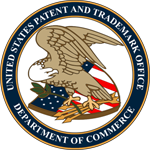 The timing on my post yesterday (More Frivolous Patents) was pretty good. The patent trolling issues have been getting some coverage lately in more mainstream press (not just in legal or industry press) which has the potential to actually get noticed by someone (or someones) who can make a change.
The timing on my post yesterday (More Frivolous Patents) was pretty good. The patent trolling issues have been getting some coverage lately in more mainstream press (not just in legal or industry press) which has the potential to actually get noticed by someone (or someones) who can make a change.
Unfortunately, some people seem to think that patent reform is already in progress via the America Invents Act (S. 23 & H.R. 1249), which has so far only passed the House. The summary of the bill from OpenCongress.org:
Changes the patent application system from one that awards patents to the first person to invent something to a system that awards the first person to file a patent application on an invention. It would also allow for more public feedback on applications in order to prevent bad patents, establish new rules for challenging patents, guarantee that fees from patent applications can be retained by the patent office, and more.
Not being a lawyer, I have only the wisdom of the Internet on which to rely when it comes to interpreting the legalese of the bill. The bulk of what I have found is focused more on the first-to-file changes of the law. From CNN Money (Patent reform is finally on its way, June 24, 2011):
At the core of both bills is a transition of the U.S. patent law from a "first to invent" to a "first to file" system. That would give the patent to the first applicant, rather than the first inventor. It's the standard most of the rest of the world uses, since it prevents inventors from coming out of the woodwork and and laying claim to a patent.
The CNN article also says that the bill is designed to keep patent battles out of the courts and links to a 2008 article about a trampoline safety net inventor (Is your idea safe?).This bill, however, does not address the overwhelming surge of patent trolling in recent years. In addition, there are a lot of people who don't care for this bill, as a Google search will show.
Last week the radio program This American Life ran an episode titled "When Patents Attack!" detailing its experience with just one patent troll, Intellectual Ventures (who is against the America Invents Act). I have embedded the (too large to fit comfortably in my blog) audio player for the episode. It's perhaps a bit comedic, but it is worth a listen if patent trolling is new to you, especially if you aren't technically inclined.
To tear a piece out of the story out and provide some context about how broken the patent system is, enjoy this example of chaos:
Crawford's patent was for "an online backup system." Another patent from the same time was for "efficiently backing up files using multiple computer systems." Yet another was for "mirroring data in a remote data storage system."
And then there were three different patents with three different patent numbers but that all had the same title: "System and method for backing up computer files over a wide area computer network."
Martin says about 30 percent of U.S. patents are essentially on things that have already been invented. In 2000, for example, the patent office granted a patent on making toast — patent number 6080436, "Bread Refreshing Method."
SFGate takes it a bit further in its piece "Who Does Patent-Trading Firm Intellectual Ventures Work For, Anyway?"
What NPR does not get into, however, is the fact that Intellectual Ventures is backed by many of the biggest and most powerful companies in technology, including Amazon, Apple, Cisco, eBay, Google, Nokia, Sony, Yahoo, and — of course — Microsoft.
[...]
These companies are believed to have invested in Intellectual Ventures in part to make sure they have access to its huge patent trove. (Other investors include universities and investment firms.)
The Economist posted its own take on the chaos today, spurred by the piece from This American Life in the article Patents against prosperity. The author makes the case for patent trolling stifling the American economy:
Nevertheless, it remains that America is the world's leader in technical invention, and continues to attract many of the world's most inventive minds. That's why it is so important that America remain especially conducive to innovation. And that's why America's intellectual-property system is a travesty which threatens the wealth and welfare of the whole world.
Some of the commentors on the story make interesting arguments, but nobody denies that the current state of the patent system is broken.
Regardless of your source, they all tend agree that patent trolls are a real concern to businesses, with the risk of litigation ever-present. This has created the new business model of paying into patent companies as a form of protection money, whether by partnering up (such as the Nortel patent bidding) or paying one off.
Yesterday I talked about more companies on the web getting sued, tomorrow (if time allows) I plan to discuss the new MPEG-LA patent pool.














0 comments:
Post a Comment